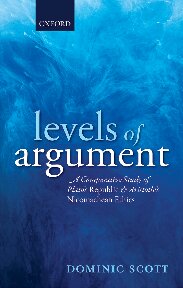(Ebook) Levels of Argument: A Comparative Study of Plato's Republic and Aristotle's Nicomachean Ethics by Dominic Scott ISBN 9780199249640, 0199249644
InLevels of Argument, Dominic Scott compares theRepublic and Nicomachean Ethicsfrom a methodological perspective. In the first half he argues that theRepublicdistinguishes between two levels of argument in the defence of justice, the 'longer' and 'shorter' routes. The longer is the idealand aims at maximum precision, requiring knowledge of the Forms and a definition of the Good. The shorter route is less precise, employing hypotheses, analogies and empirical observation. This is the route that Socrates actually follows in the Republic, because it is appropriate to the level of hisaudience and can stand on its own feet as a plausible defence of justice. In the second half of the book, Scott turns to theNicomachean Ethics. Scott argues that, even though Aristotle rejects a universal Form of the Good, he implicitly recognises the existence of longer and shorter routes,analogous to those distinguished in theRepublic. The longer route would require a comprehensive theoretical worldview, incorporating elements from Aristotle's metaphysics, physics, psychology, and biology. But Aristotle steers his audience away from such an approach as being a distraction from theessentially practical goals of political science. Unnecessary for good decision-making, it is not even an ideal. In sum, Platonic and Aristotelian methodologies both converge and diverge. Both distinguish analogously similar levels of argument, and it is the shorter route that both philosophersactually follow--Plato because he thinks it will have to suffice, Aristotle because he thinks that there is no need to go beyond it.
*Free conversion of into popular formats such as PDF, DOCX, DOC, AZW, EPUB, and MOBI after payment.


